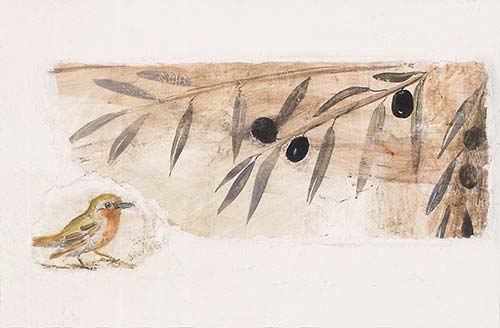6th BSEC Month of Culture
1-30 November 2022
Gastronomy-Hellenic Republic
The Mediterranean Diet is inscribed on UNESCO Representative List of the Intangible Cultural Heritage of Humanity since 2013.
Greece is the BSEC country which is intimately correlated with it.
Mediterranean gastronomy and Mediterranean products are mentioned as an ideal, model diet, mainly including olive oil, cereals, fresh or dried fruits, vegetables, small amounts of fish, dairy and meat, many seasonings and spices, accompanied by wine or other forms of distilled liquor, always with respect to the tradition and beliefs of each society.
However, the Mediterranean Diet is not just a standard diet. It involves a set of skills, knowledge, rituals, symbols and traditions concerning crops, harvesting, fishing, animal husbandry, conservation, processing, cooking, and particularly the sharing and consumption of food. Eating together is the foundation of the cultural identity and continuity of communities throughout the Mediterranean basin. It is a moment of social exchange and communication, an affirmation and renewal of family, group or community identity. The Mediterranean Diet plays a vital role in cultural spaces, festivals and celebrations, bringing together people of all ages, conditions and social classes. Moreover, it includes the craftsmanship and production of traditional receptacles for the transport, preservation and consumption of food, such as ceramic plates and glasses.
You can learn more about the Mediterranean Diet through this video.
Bonus Trivia!
- Greece has a long tradition concerning olive oil, the key element of the Mediterranean gastronomy. In 2021, the country assumed the presidency of the Network for the Mediterranean Diet.
- Koroni, in the region of Messinia, has been honoured by UNESCO as a Flagship Community of Greece for the Mediterranean Diet.
- In the context of the ‘’Greek Olive Oil Tourism’’, Greek olive oil companies welcome visitors to learn about this ‘’Olive Tree Civilization’’.
Recipe time!
On the occasion of this UNESCO International Day and of celebrating November as the World Vegan Month, let’s discover a delicious, award-winning vegetable dish.
Yemista or Gemista (Greek: γεμιστά) is a Greek dish traditionally consisting of vegetables, such as tomatoes and green peppers, stuffed with rice and vegetables' inner parts. The stuffed vegetables are then baked in the oven. The name of the dish means stuffed in Greek language, and it's a typical summer dish. It is recommended to prepare the dish when the vegetables are at the peak of the season and to serve it garnished with a spoon of Greek strained yogurt and accompanied by feta cheese.
There is also another type of this dish, with ground meat in the stuffing.
Sources: https://ich.unesco.org/en/RL/mediterranean-diet-00884, https://online.fliphtml5.com/kukhr/mzrc/#p=1
Photographs taken from: https://olivetreeroute.gr/en/, https://www.tasteatlas.com/yemista
#ICBSS #MoC2022 #CultureBSEC #Greece #Gastronomy





